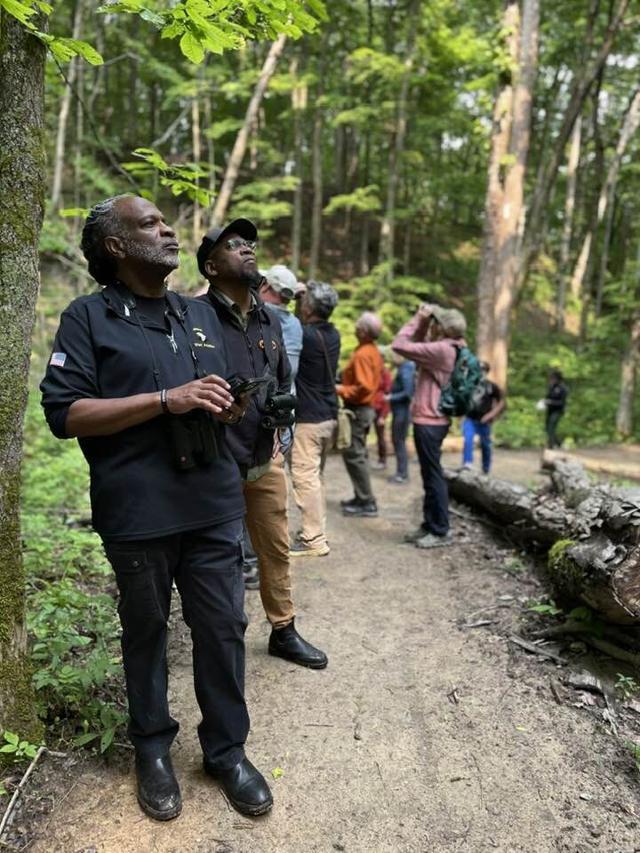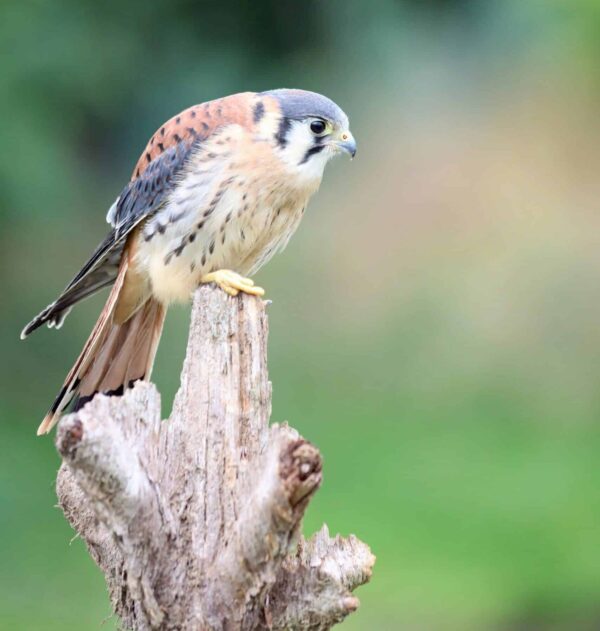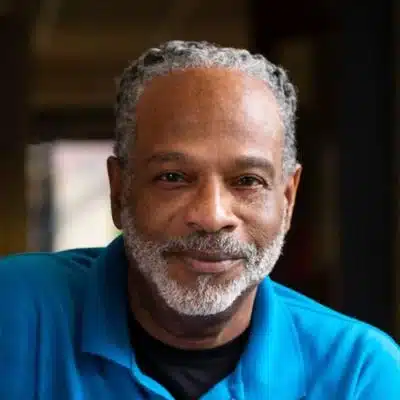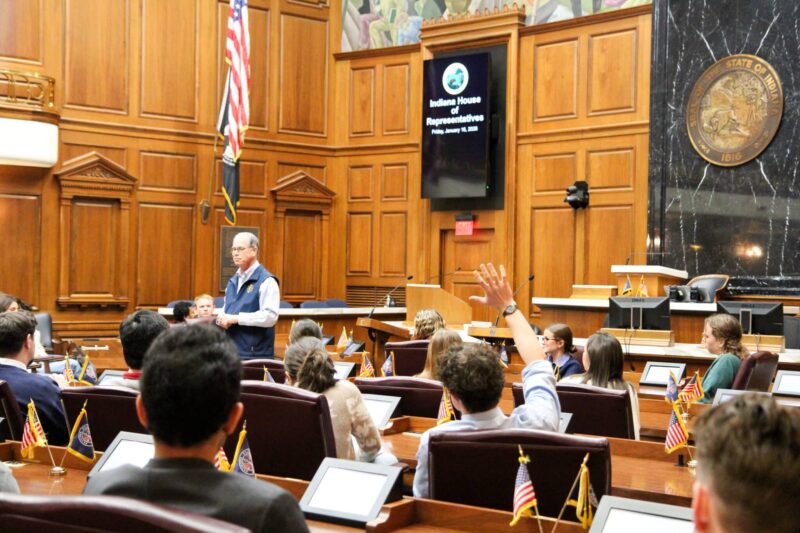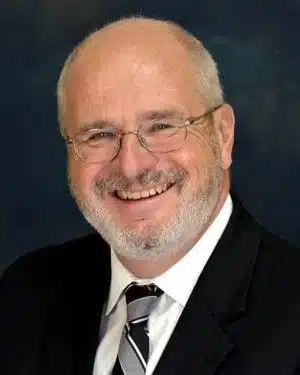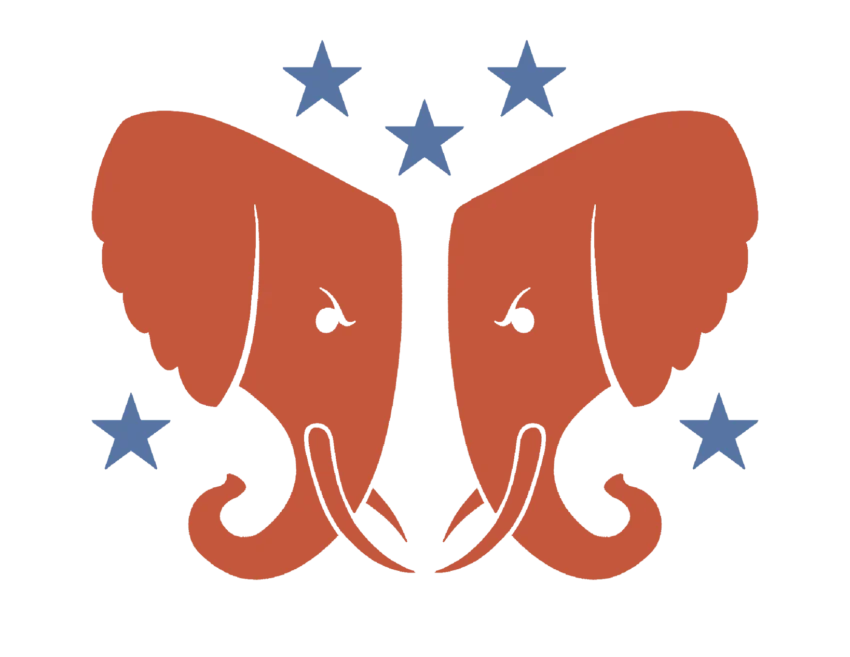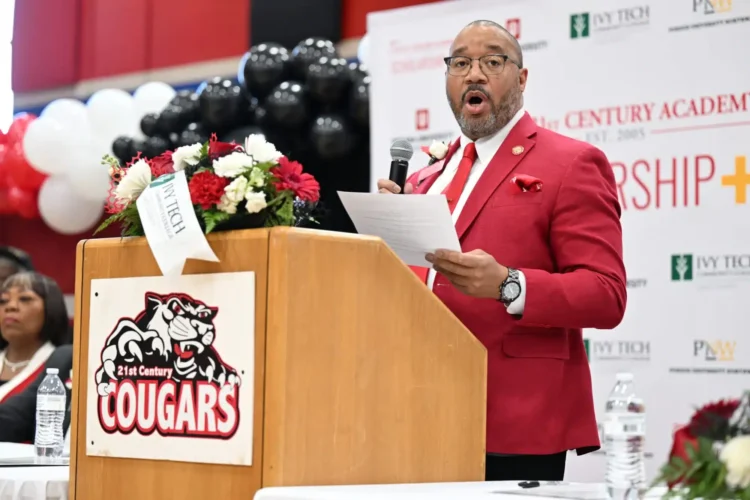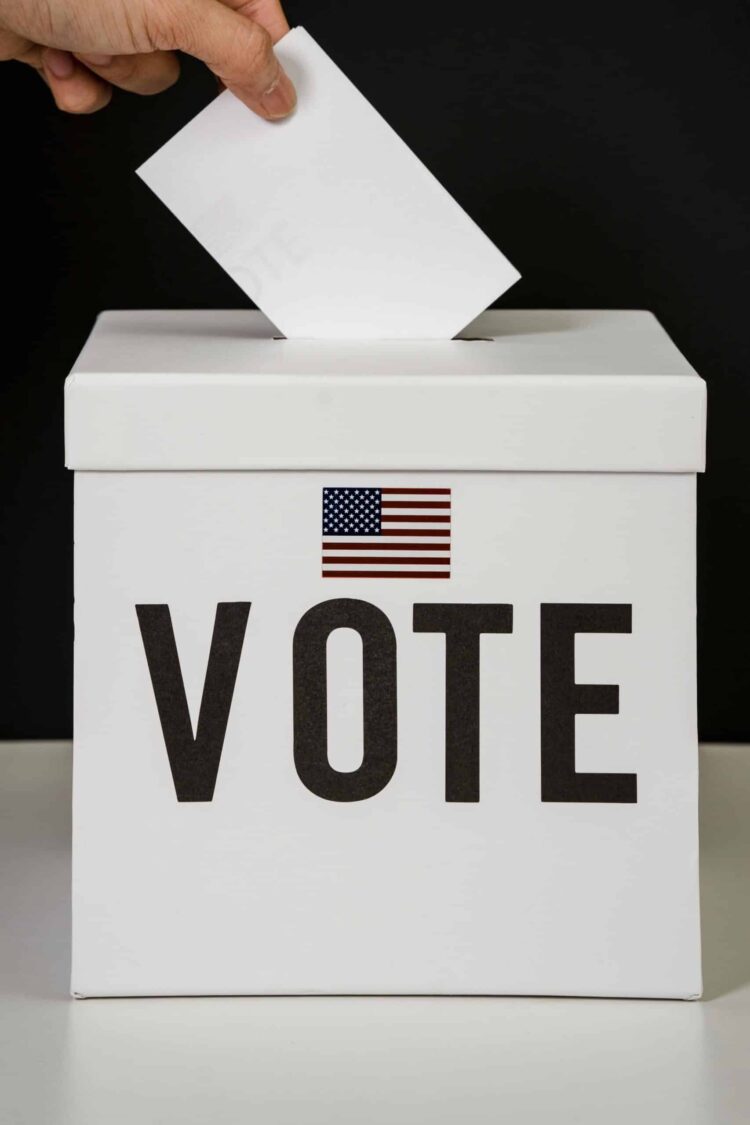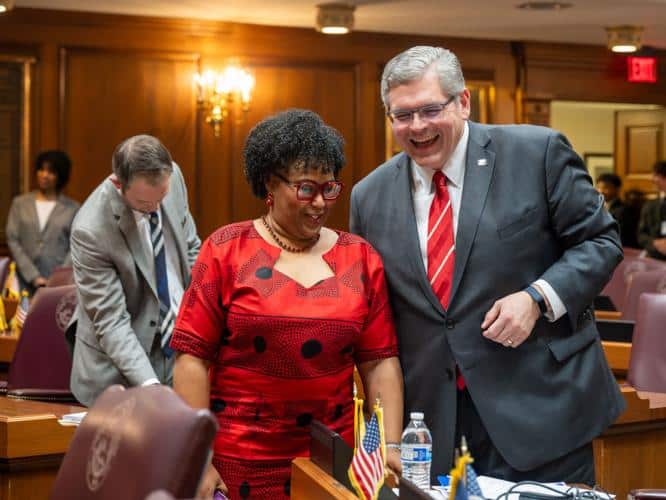More than anything, she feels his laughter shows his character. In the memories she has of them spending time together, the main things she recalls are “moments of laughter.”
“I’m always struck by how much he loves to laugh. As I’m telling you this story, I can hear his laugh,” she said. “One thing I enjoy about being in Doug’s sphere is that he’s so curious about people, and he’s so called to build connections with people. As soon as he finds the thing that they share, he will immediately build a connection.”
They first met when Morton and her colleagues at Conner Prairie were developing Indiana’s first Black Birders’ Week in 2024—a now-annual series of events to celebrate the contributions of Black birders. Gray was chosen as the first speaker.
Morton and her colleagues went on their first bird hike with Gray and immediately saw him as “the coolest man we’ve ever met,” Morton said. “We loved his calm, gentle demeanor, just strolling, talking about birds. … It was just the instant desire to really just get to know him as a human, learn from him as a birder.”
She described him moving at a “mosying pace” and taking his time to enjoy nature. When he spots a bird, he will ensure everyone in the group can see it and share an experience he’s had involving the bird. One of the reasons he loves scarlet tanagers is because of the reaction many people have to their striking appearance.
During Black Birders’ Week, she recalls Gray’s “majestic way of speaking” as he read from “Sparrow Envy,” a collection of poems by Joseph Drew Lanham, a Black author, ornithologist and naturalist whom Gray knows personally. Gray also shared some of the difficulties of being a Black birder.
The people of color in the audience felt seen, and the rest felt a call to action to create more welcoming and inclusive spaces, Morton said.
But Gray didn’t always like the idea of a Black Birders’ Week. The movement, a national one, only recently came to Indiana.
The concept began with a well-known Black birder named Christian Cooper. While bird watching in Central Park in May 2020, he asked a white woman to put her dog on a leash in an area where it was mandatory. The woman called police, pointing out Cooper’s race and claiming he was threatening her. The recorded confrontation caught national attention and, coinciding with the 2020 protests held in response to the murder of George Floyd, led to a conversation about Black people being able to enjoy outdoor spaces.
“Certain folks, especially people of color, are not always going to feel safe in that kind of environment,” Gray said.
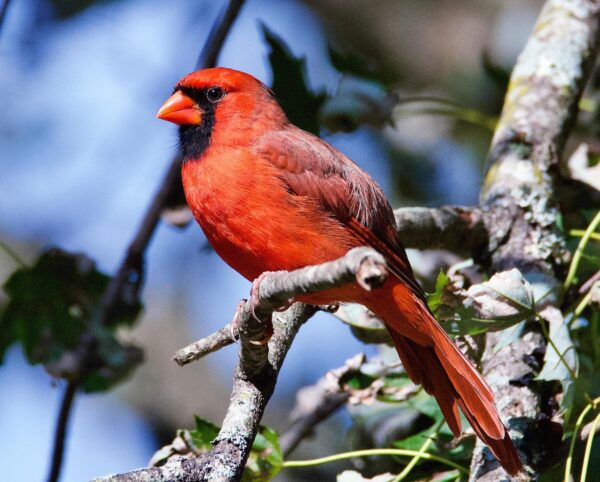
People of color are less likely to spend time outside in nature. They do not visit state and national parks as much as white demographics do and are three times more likely than white people to live in areas without immediate access to wild spaces.
Gray has been stopped by the police and has had the police called on him while bird watching on multiple occasions. This doesn’t surprise him. Just around 60 years ago, “colored” hospital sections existed, and Gray was born in one. His great-great-grandmother was born enslaved, and his father knew and marched with Martin Luther King Jr.
“A lot of the things we think were so long ago were not,” he said.
Reflecting on this, Gray finally concluded that a Black Birders’ Week was needed, and this has inspired several goals in his life. He dreams of bird watching in Africa, recording the birds his ancestors would have seen. His forebears first came to the country through Virginia. He’s watched birds in the state, walking a slave trail there.
Gray has been working on a book called “God is a Bird Watcher” about his grandfather and earlier ancestors.
He is also developing a bird-watching group called Birding for the Soul that focuses on the healing aspect of being outdoors and building a community regardless of race, sexual orientation or any other differences.
He has other plans to spread birding by starting a birding festival in Mississippi called “Mississippi Birds and Blues Festival”—an idea he got from his father. One of the reasons he wants to spread birding is because he has seen firsthand the “healing aspect” that bird watching can have on people, including himself.
It supported him when he worked as a chaplain at a senior living home, providing a sense of calm.
“That work isn’t for everybody because you are dealing with death and dying a few times a week,” he said.
More recently, a member of Second Baptist Church was having issues with her teenage son and wanted him to spend some time with Gray as his pastor. So Gray did what his grandfather taught him years ago: to take a pause from life and look up.
Gray took the boy bird watching, and he recalls the boy’s awe when a bald eagle flew over, so close they could hear the wind over its wings.
“Just being out in that environment,” he says. “I could tell that it was soothing for his spirit.”

